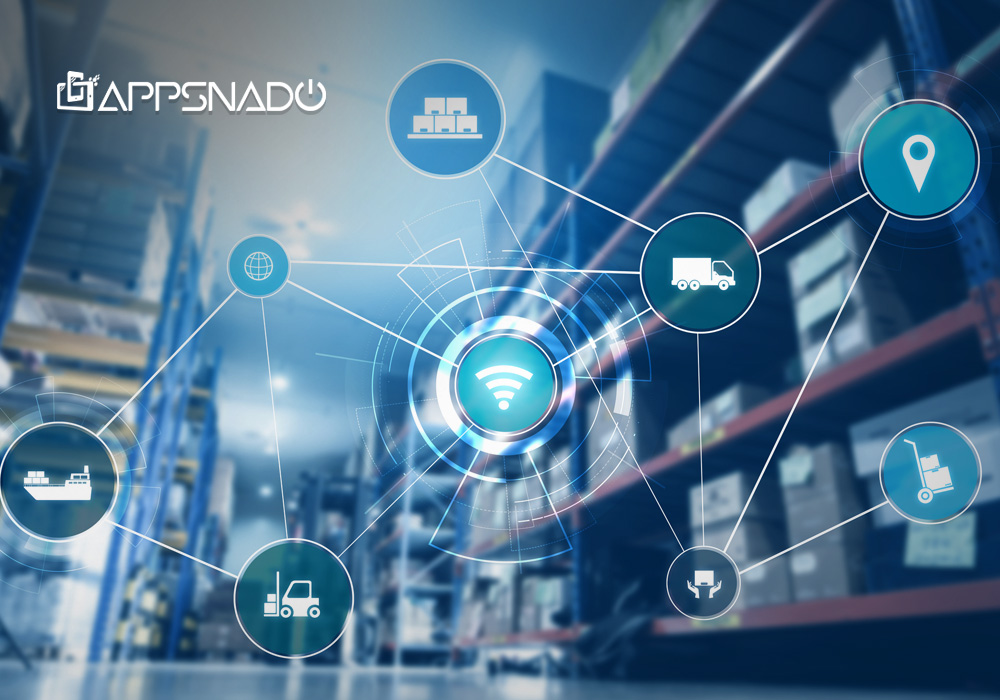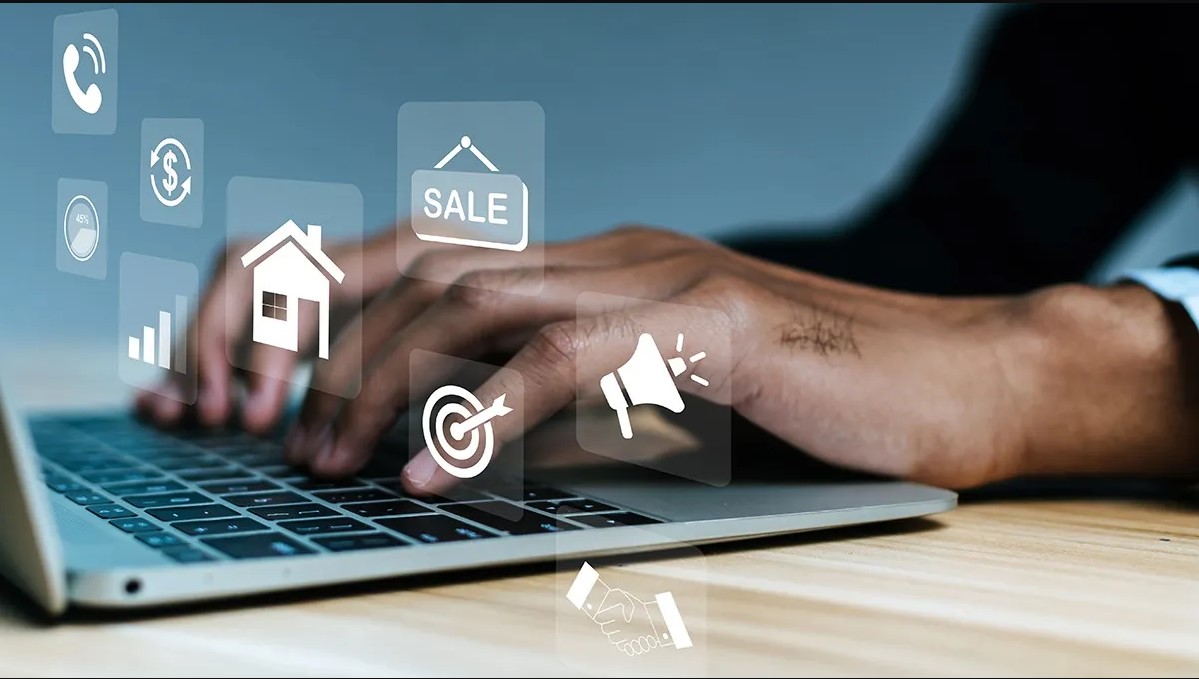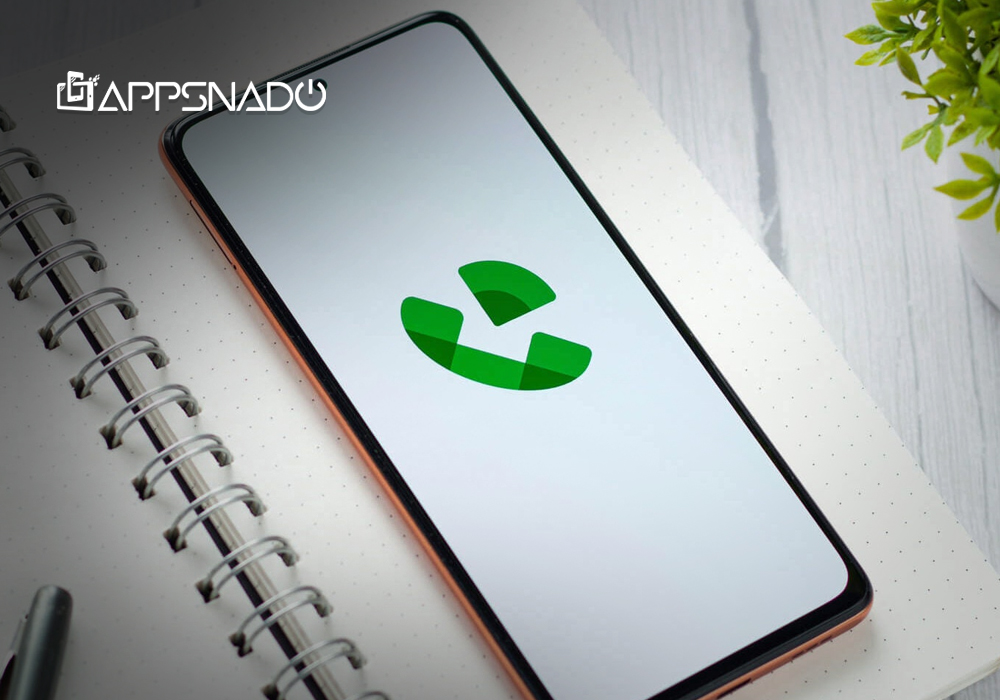Mobile apps in this digital era have been generating significant revenue; have you ever wondered how an app can make your business successful and turn a normal entrepreneur into a successful business person? Or do you often think about starting an enterprise app, game app, or any other app but think of the difficulties of starting up? As easy as having a mobile app sounds, it comes with many technicalities, and there’s a chance of having an app but not generating any revenue out of it because having a successful app requires a lot of effort and technicalities. Using the correct strategy, you can have a successful mobile app. Industrial IoT applications are revolutionizing how manufacturing and industrial processes are managed.
IoT development in Application
IoT refers to software creation by integrating IoT, which unlocks the implausible experience of all the apps connected and enables you to use the devices. Which are not even in your radius; imagine if you went to work and suddenly remembered that you forgot to turn off the air conditioner or lock the car and be able to control all those things with just a mobile application; yes! It’s possible with IoT application development. IoT is shaping the future with its technology and diminishing the burden on individuals by bringing innovation to life.
Benefits of IoT Mobile Applications
Every industry or business wants technology. As a result, they benefit from the application of the industrial Internet of Things, which results in less frustration, improves work quality, and fosters success. Developing an application using IoT requires a proper strategy and work. There are an unlimited number of applications of IoT in industries. Let’s discuss a few of them below
- Enhance work efficiency
With the incorporation of IoT in mobile app development, the work gets more optimized. The main goal of the integration of IoT industries is automation. A human sometimes can’t remember every little thing. IoT-integrated devices can perform tasks simultaneously with less to zero human effort.
- Enhanced Understanding of Customer Actions
IoT understands and creates more enhanced insights and understands customer preferences and expectations that will help you make more informed decisions and give you insights into your strategies so that you know if you need to modify your strategy.
- Heightened protection
The data integrated into the devices also needs to be secured; the IoT provides enhanced security for the data integrated into the mobile application. With its higher encryption and protection protocols, it keeps cyber thefts away.
- Makes You Independent of Location
IoT makes things easy for you in a way that you can have authority over distant objects by just using a mobile application; you can have insights, control the working, and adjust according to your needs, for example, a smart camera that shuts down automatically when you go out or even close it with the mobile application since the smart camera can send the notification on your mobile IoT application.
IoT Mobile Application Startup Guide: Step-by-Step Instructions
Here are step-by-step instructions to help launch your IoT mobile application startup or industrial IoT application.
Step 1: Identify Your Niche
The first step in starting an IoT mobile application is identifying your niche. Determine which industry or field you want to focus on and what problem or need your application will address. Once you have identified your niche, research the market to determine the demand for your application.
Step 2: Design Your Application
Once you have identified your niche, it’s time to design your IoT mobile application. Consider the user experience and the features that will set your application apart from the competition. Work with a designer to create a user-friendly interface and develop a prototype of your application.
Step 3: Develop Your Application
After the design phase, the next step is the development of the Internet of Things industrial application. Hire an experienced developer or a team of developers to bring your application to life. Test your application thoroughly to ensure it functions as intended and meets your standards.
Step 4: Launch and Market Your Application
Once your IoT mobile application is developed and tested, it’s time to launch and market it. Create a marketing plan that targets your audience and showcases the benefits of your application. Utilize social media, search engine optimization, and other marketing strategies to increase visibility and attract users.
Step 5: Continue to Improve and Innovate
The final step in launching your IoT mobile application startup is consistently focusing on improvement and innovation. Listen attentively to user feedback and implement necessary updates to enhance the overall user experience. Stay abreast of the latest technologies and trends within your niche to ensure that you remain competitive and can introduce new and innovative features.
Check Out This: Which Of The Following Safety And Privacy Features Is Not Included In A P2P App Or Service?
Challenges To Overcome In Industrial IoT Applications And Their Solution

There are several challenges that businesses face when developing IoT mobile applications. Some of these challenges include:
- Security Concerns: One of the biggest challenges of IoT mobile applications is the security of the data transmitted between devices. The data must be encrypted and protected from unauthorized access.
- Interoperability: IoT involves different devices communicating with each other. Therefore, it is important to ensure that the devices are compatible with each other to enable seamless communication.
- Scalability: IoT applications generate a large amount of data. Therefore, ensuring that the system is scalable and can handle the increased demand is important.
- Power Consumption: IoT devices are often powered by batteries. Therefore, optimizing the devices’ power consumption is important to ensure a longer battery life.
- User Experience: IoT mobile applications must be user-friendly and easy to use. They must provide a seamless experience for the users.
To overcome these challenges, businesses must invest in robust security measures, ensure that the devices are interoperable, and optimize the power consumption of the devices. They must also focus on providing a user-friendly experience and ensure the system is scalable enough to handle increased demand. Additionally, businesses must stay up-to-date with the latest technology and trends in the industry to remain competitive and offer new and innovative features.
Impact Of The Application Of Industrial Internet Of Things
- Automation of processes: By integrating IoT technology into mobile applications, businesses can automate various operations, reducing the need for manual labor and increasing efficiency.
- Remote observation and management: IoT enables companies to monitor and manage their activities from a distance, saving them both money and time. IoT sensors, for instance, can be used by a manufacturing facility to track the operation of its equipment and spot possible problems before they result in downtime.
- Improved customer experience: Businesses may enhance their goods and services by using IoT to get insightful data about consumer behavior. IoT sensors, for instance, can be used by a retail establishment to monitor consumer behavior and determine which products are most popular. The store can use this information to adjust its inventory and layout, enhancing the shopping experience for customers.
- Cost savings: Businesses can save money on labor expenses by automating procedures and lowering human labor needs. IoT can also assist laborers who need less energy.
- Improved decision-making: IoT provides businesses with valuable data insights to help them make informed decisions. For example, a logistics company can use IoT sensors to track the location of its shipments and optimize its routes for maximum efficiency.
- Increased competitiveness: By adopting IoT technology, businesses can stay ahead of the curve and remain competitive in their respective industries. IoT can help companies offer new and innovative products and services that meet customers’ changing needs.
Internet Of Things Industrial Applications
There is no doubt that the IoT is positively intensifying the results. There are multiple applications of IoT in the industry; apart from the general applications of the IoT, there are specific applications in every industry; let’s discuss in detail the applications in different sectors:
- IoT aids in monitoring patients remotely, which has been a big help to doctors as they can’t be simultaneously present to every other patient; it is also important to manage severe symptoms in emergency cases with IoT; it can also track medication adherence and notify whenever the dose is missed, which can reduce the recurrence rate of the disease and can also manage chronic illnesses.
- In logistics, the tracking of shipments is really important, and IoT helps a lot in tracking the shipments in real-time; it helps optimize the delivery routes and send updates to the portals so you can track your package; it also helps manage inventory.
- It can aid in monitoring production by using the
IoT Application Development
; the production manager can even be distant and get every important update about the plants and production. It can also help track the equipment’s performance.
- The agriculture industry is applying the IoT to precision farming to get more reliable and educated insights like moisture content of the soil, temperature, hydration, or humidity sensors to produce good-quality crops. It can also monitor crop growth and harvesting.
- The IoT is revolutionizing the retail industry. It can track inventory, update accounts, and help personalize the customer experience, heightening the supply chain.
Innovative Startup Opportunities in IoT
Besides its use in industry, the Internet of Things offers several creative opportunities in various sectors. Here are a few instances:
- Smart Cities:
One promising avenue for IoT innovation lies in the vision of smart cities. IoT can sculpt more effective and sustainable urban environments by intricately linking disparate city services ranging from trash management and street lighting to public transportation and traffic control. Integrating these systems fosters an ecosystem where data-driven insights enhance the overall functionality of cities, paving the way for smarter, more responsive urban living.
- Healthcare:
Healthcare emerges as a fertile ground for IoT disruption. The ability to remotely monitor patients, track vital signs, and manage medication schedules through IoT devices holds the promise of a healthcare revolution. Such technology facilitates timely interventions and empowers healthcare providers to deliver penalized and proactive treatments. The implications for patient outcomes and the efficiency of healthcare delivery are profound, marking a paradigm shift in how we approach medical care.
- Agriculture:
In the agricultural sector, IoT is a game-changer for farmers striving to optimize their practices. Real-time monitoring of weather conditions, soil moisture levels, and crop growth empowers farmers with actionable insights. This data-driven approach enables precise decision-making, improves production efficiency, and enhances crop yields. As agriculture increasingly embraces sustainable and tech-driven practices, IoT plays a pivotal role in shaping the future of farming.
- Manufacturing:
Manufacturing stands at the forefront of IoT innovation. Through optimizing supply chains, improving production processes, and implementing predictive maintenance strategies, IoT reshapes the manufacturing landscape by optimizing supply chains, improving production processes, and implementing predictive maintenance strategies. Real-time insights provided by IoT devices streamline operations, reduce downtime, and enhance overall productivity. The transformative power of IoT in manufacturing extends beyond efficiency gains, influencing how industries approach and adapt to the ever-evolving production landscape.
- Retail:
IoT can help retailers create a personalized shopping experience for customers, track inventory levels, and optimize store layouts for better customer flow. In the retail sector, the IoT promises to redefine the customer experience. Retailers can enhance operational efficiency and customer satisfaction by creating personalized shopping journeys, real-time tracking of inventory levels, and optimizing store layouts based on customer flow patterns. The data-driven insights IoT devices provide empower retailers to make informed decisions, aligning their strategies with the dynamic preferences of their clientele.
These are just a few examples of the innovative opportunities that the IoT presents. As more industries and businesses adopt IoT technology, you can expect more creative and innovative uses.
Summing Up
In conclusion, integrating industrial IoT applications will change how industries operate and manage their processes. It has a lot of benefits, including enhanced work efficiency, improved understanding of customer actions, heightened protection, and making individuals independent of location. To launch an IoT mobile application startup, it is important to identify your niche, design and develop your application, launch and market it, and continue to improve and innovate. Despite challenges such as security concerns and a lack of standardization, the benefits of IoT mobile applications make it a worthwhile venture for businesses looking to stay ahead of the curve.
Also, Check These:







